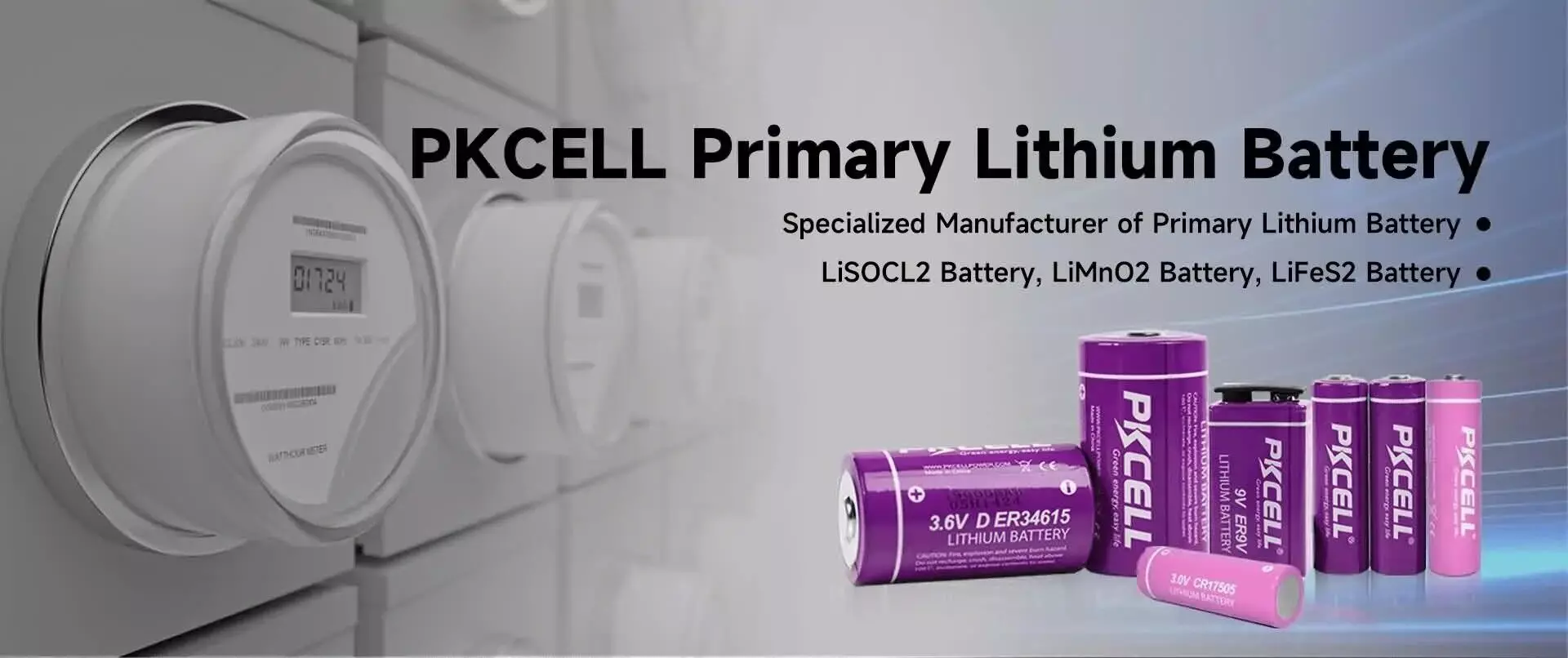Key Factors to Consider When Buying Primary Lithium Batteries
image for illustrative purpose

Introduction:
With today's rapid working environment, stable and long-lasting power supply sources are critical for several platforms, from IoT to medical devices and industrial equipment. We summarised the essential aspects you should consider while buying primary lithium batteries to ensure you get the best value for your power needs.
What You Should Know about Primary Lithium Batteries?
Primary lithium batteries are non-rechargeable, energy-dense power sources with a long shelf life and superior performance over traditional alkaline batteries. These batteries are commonly used in these applications where reliability and longevity are critical.
What to Look for When Purchasing Primary Lithium Batteries?
1. Battery Chemistry and Type:
There are different chemistries of primary lithium batteries, including:
● Lithium-Thionyl Chloride LithiumL: Thionyl Chloride (Li-SOCl2) batteries are wells suited for industrial and IoT applications because of their high energy density and long shelf life.
● Lithium-Manganese Dioxide (Li-MnO2): Use in medical devices and security systems, providing a trade-off between energy and price.
● Lithium-iron disulphide (Li-FeS2): It is lightweight and stable, making it suitable for use in consumer electronics and cameras.
Selecting the best chemistry for your battery comes down to what you need for your application.
2. Capacity and Energy Density:
Battery capacity, expressed in milliampere-hours (mAh), decides how soon the battery will run out. More capacity is equal to longer working life. Demanding Energy Primary lithium battery manufacturers provide a wide range of capacities. Choosing a battery with high energy density performance will always be smooth and reliable.
3. Operating Temperature Range:
Batteries that can work under extreme temperatures are required for different applications. For instance:
➔ Many industrial IoT devices require batteries that can operate in extreme ecological conditions, such as -40°C to 85°C.
➔ Medical implants' temperature tolerance is essential to operate within the human body without jeopardizing health.
➔ Make sure you select a battery rated for the environmental conditions for which it will be used.
4. Self-Discharge Rate and Shelf Life:
Primary lithium batteries have a long shelf life of 10 years or more. The self-discharge rate differs depending on chemistry and quality. Choose batteries with low self-discharge so the energy loss during storage is minimized.
5. Safety Features and Certifications:
When selecting a primary lithium battery supplier, safety is paramount. Opt for batteries that conform to mutually accepted safety standards, like:
➔ Comply with UL (Underwriters Laboratories) certifications.
➔ IEC (International Electrotechnical Commission) standards.
➔ Training materials that end with RoHS (Restriction of Hazardous Substances).
➔ With built-in protection circuits, you are also protected from overheating, leakage, and short circuits.
6. Application Specific Requirements:
Each industry needs bespoke battery solutions.If your Business is Related to IoT Devices, Then Use IoT Battery Solutions With the Highest Efficiency, long-term Usage, and Low Maintenance.
➔ For example, IoT Battery Solutions offers a selection of primary lithium batteries, purpose-built for IoT applications that require them to be dependable and long-lasting.
7. Supplier Reputation and Quality Assurance:
The rule of thumb is to always choose a reputed primary lithium battery supplier to ensure quality and consistency. Do a background check on the supplier, read customer reviews, and verify their certifications to ensure that they have met industry standards.
8. Cost vs. Performance:
Though price is key, cheaper batteries usually mean poorer quality and a greater risk to your safety. Longer-lasting products inevitably save you money; consider the total cost of ownership, including longevity, maintenance, and replacement frequency, before purchasing.
9. Customization and Bulk Supply Options:
If your business needs batteries in large quantities, see if the supplier has bulk purchasing options. Industrial and commercial use may benefit from custom battery solutions some suppliers offer to meet specific application needs.
10. Environmental Impact and Disposal:
It is essential to dispose of batteries environmentally and responsibly. Select suppliers that have biodegradable disposal programs or batteries that meet recycling guidelines.
Conclusion:
Choosing the best primary lithium battery supplier requires a thorough examination of factors such as battery chemistry, capacity, safety features, and application-specific requirements. Whether you're looking for batteries for industrial, medical, or IoT applications, these three key areas will help you make the most informed selection.
FAQs:
Q1. Explain the difference between primary lithium batteries and secondary lithium batteries.
A: Primary lithium could be at least non-rechargeable, and secondary lithium batteries can be rechargeable.
Q2. How long do valves of lithium batteries last?
A: Primary lithium batteries can last 5 to 15 years, depending on chemistry and usage.
Q3. Where do primary lithium batteries go best?
A: They are perfect for IoT devices, medical implants, industrial sensors, security systems, and remote monitoring applications.
Q4. Can you use primary lithium batteries?
A: Yes, as long as they are supplied by a trustworthy supplier and operated under certain specified conditions.
Q5. How do IoT Battery Solutions reduce the cost of primary lithium batteries?
A: IoT Battery Solutions offers tailored lithium battery solutions for exceptional performance and reliability.
With these factors in mind, you can then choose the optimal primary lithium battery for your applications.

